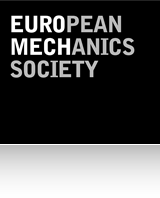552 – Modelling Atmospheric and Oceanic flows: insights from laboratory experiments and numerical simulations
Date:
24 September 2013 – 26 September 2013
Location:
Berlin, Germany
Website:
Chairperson:
Dr. Thomas von Larche
Freie Universitaet Berlin
Dept. of Mathematics & Computer Sciences
Institute for Mathematics
Arnimallee 6,
D-14195 Berlin-Dahlem
Germany
Phone: +49 30 838 56 963
Fax: +49 30 838 75 412
Email: larcher@math.fu-berlin.de
Co-chairperson
Dr. Paul D. Williams
Dr Paul Williams,
Royal Society University Research Fellow,
Department of Meteorology, University of Reading,
Earley Gate, Reading RG6 6BB, UK
phone: +44 (0) 118 378 8424,
fax: +44 (0) 118 378 8316
email: p.d.williams@reading.ac.uk
Dr. Wolf-Gerrit Fruh
School of Engineering & Physical Sciences;
Mechanical Engineering
NS 2.10, Heriot-Watt University
Edinburgh
EH14 4AS, UK
phone: +44 (0) 131 451 4374
email: w.g.fruh@hw.ac.uk
This colloquium will pull together approaches and recent results from laboratory experiments and corresponding numerical simulations, both performed to improve our understanding of atmospheric and oceanic fluid motion. As sufficient computer resources and numerical codes become available, the interplay of numerical simulations and experimental research is gaining increasing interest in the scientific community.
The main focus of the colloquium is the comparison of both, results of laboratory experiments and of adequate numerical simulations with the particular aim to accurately simulate laboratory flows using numerical models.
With the focus on combined laboratory and numerical investigations of a system, we will address on the experimental side new designs of experiments on a laboratory scale, developments in instrumentation and data acquisition techniques, and the computer-based analysis of experimental results. On the numerical side, we will address developments in simulation techniques from model formulation to assimilation techniques of experimental data into the model configuration, initialisation or forcing. The presentation of results from corresponding experiments and models will bring the two sides together with a discussion of methodologies of reliable lab-model comparisons.
Topics:
- Rotating flows
- Balanced and unbalanced flows
- Atmospheric flows (Earth and other planets)
- Oceanic flows
- Jets, waves and vortices
- Turbulent flows
- Advances in numerical methods
- Validation of numerical methods using laboratory experiments
- Technical and methodological advances in laboratory experiments
- Data assimilation
